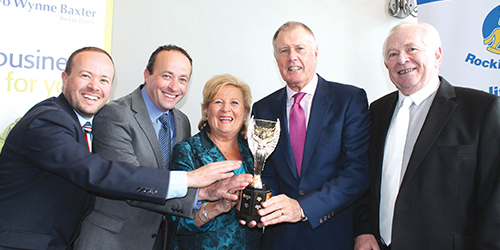
Mistakes made during a Tribunal hearing can result in an employer losing a case and having to make large payments in compensation. Here we look at a number of common mistakes made by employers, all of which can increase the risk of losing an otherwise winnable case.
MISTAKE 1: Turning up without having read relevant documents
Witnesses who turn up at a Tribunal hearing to give evidence having not recently read their witness statement and not being familiar with all of the documents they refer to in their statement are more likely to perform badly in cross examination and won’t make a good impression with the Judge. They will lack credibility which means that in the event of a dispute in the evidence, the Judge may decide to prefer the evidence of the Claimant.
MISTAKE 2: Not disclosing all the evidence
Producing documents late, or worse still, during the Tribunal hearing, should always be avoided where possible as it can appear as though there has been an attempt to hide or conceal evidence. If you have to produce relevant documents at the hearing in circumstances where they were available, and ought to have been disclosed much earlier in the process, a Judge may draw appropriate inferences from such non-disclosure against the employer when reaching a decision.
MISTAKE 3: Realising minutes of meetings aren’t quite right
Minutes of meetings are commonly the subject of much scrutiny and cross examination during Tribunal hearings, particularly minutes of investigations, disciplinary and appeal hearings. It is too late at the hearing for you to deny that the minutes are accurate or to start amending them. For this reason you need to take care to look through the minutes very carefully at the time they are prepared and, importantly, before they are disclosed. You should also attempt to agree minutes with the employee in order to avoid a situation where the employee denies the accuracy of the minutes at the hearing.
MISTAKE 4: Not answering the question being asked
Everyone accepts that nerves can affect witnesses at the Tribunal, particularly those giving evidence for the first time, but continually not listening to, and not answering, the question being asked can begin to look like a witness is trying to hide something. Equally, while memories do fade with time, continually saying ‘I don’t remember’ – even to events where you would expect some memory of them – can damage credibility and leave a Judge thinking that the witness is unreliable and unbelievable. Witnesses should familiarise themselves with the documents beforehand to remind themselves of events from months (or years) earlier.
MISTAKE 5: Not having paid enough attention to important letters like the invitation to disciplinary or the dismissal letter
The dismissal letter is important - it provides the best evidence of the reason for dismissal that was in the mind of the employer at the time of the dismissal. Witnesses can expect to be cross examined in some detail about the content of the letter if there is a challenge to the real reason for dismissal. Equally the invitation to the disciplinary is likely to be the subject of scrutiny, particularly if it is alleged that it does not comply with the ACAS Code. Failure to prepare properly may lead to answers during questioning which only serve to weaken a defence.
MISTAKE 6: Arguing with the Claimant’s representative
It is the job of a representative to ask questions and the job of a witness to answer them. It is not the job of a witness to ask the representative questions, something which can quickly descend into what may sound like arguing with the representative. During cross examination a witness can expect to be faced with difficult questions; some questions witnesses may not like, may not want to answer and may even be aimed at provoking a witness. When answering questions it is important to remain calm and continue to answer questions honestly and fully.
MISTAKE 7: Not answering questions well
Witnesses who do not answer questions well have often not understood the question. Witnesses should avoid answering questions they do not understand but instead should say they do not understand and ask for clarification.
MISTAKE 8: Saying too much!
The key to giving good evidence is to stick to answering the question being asked. Witnesses who feel the need to fill a silence are at risk of saying too much and damaging (or contradicting) the evidence they have already given. Faced with a silence, witnesses should simply wait for the next question.
MISTAKE 9: Not being familiar with the ACAS Code of Practice on Discipline and Grievance
Managers who are unfamiliar with the ACAS Code of Practice can quickly lack credibility and appear as though they really don’t know what they are doing. Even if a manager was unfamiliar with the ACAS Code at the point of dismissal, they should familiarise themselves with it prior to the hearing and understand its relevance and importance, as they may be questioned about it.
MISTAKE 10: Not being understood by the Employment judge
Witnesses often forget that it is the Tribunal or Employment Judge that needs to hear what witnesses are saying. When asked a question, witnesses should therefore turn and address their answers to the Judge. It is also important to bear in mind that notes are being taken of the evidence by the Judge and therefore witnesses should pause until they see the Judge’s pen stop, before continuing their answer.
RB’s Employment Team has a huge amount of experience helping clients present their cases at the Tribunal. This starts with preparing a good claim or defence and continues right up to working with clients to ensure that they perform well at the Tribunal and have the best possible chance of winning!
If you would like to know more, call Tony Hyams-Parish on 01293 558544 or email him at
ahyamsparish@rawlisonbutler.com






